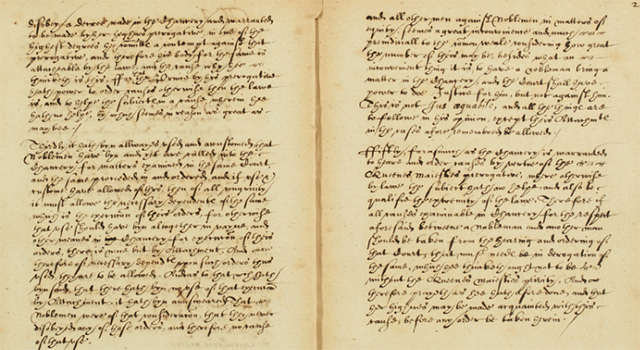Transcribed pamphlets shed new light on pre-Civil War Britain
New project and database led by University of Birmingham's Dr Noah Millstone

Manuscript Pamphleteering in Early Stuart England project
Hundreds of handwritten pamphlets detailing the news, politics, intrigue and scandals of pre-Civil War Britain are now at the fingertips of academics, history buffs, teachers and students. The Manuscript Pamphleteering in Early Stuart England project was led by University of Birmingham historian Dr Noah Millstone, and the Historical Association were involved in consultation for the project.
The project team transcribed and digitised hundreds of handwritten pamphlets dating from before the outbreak of the Civil War (1642), from over 50 UK and US archives, ranging from the British Library to local records offices and libraries. These new readable and searchable versions have now been published in a free online database, creating a vital resource for future research into English and European history.
These pamphlets have also informed a set of teaching resources for A-Level teachers delivering modules on 17th-century history.
Before the Civil War, England had a large, influential and often radical culture of pamphlet literature. Speeches, letters, petitions, briefs and dialogues joined character assassinations, secret histories and conspiracy theories in a jumbled literary underground. Copying by hand was often easier than arranging for printing; some works were also considered too dangerous to print, including tracts from political or religious dissidents.
The pamphlets' content included speeches delivered by government officials, commentary on government policies, apologies for (or attacks on) public figures, accounts of important criminal trials, and considerations of recent events. English foreign policy and news from abroad also featured extensively, as did religious controversies.
Dr Millstone says; ‘This manuscript pamphlets database will allow researchers and students see a very different side of 17th-century England. The materials we’ve been able to make available show that. Like their modern counterparts, 17th-century readers were interested in sexual misconduct and government corruption, and took conspiracy theories extremely seriously.’

